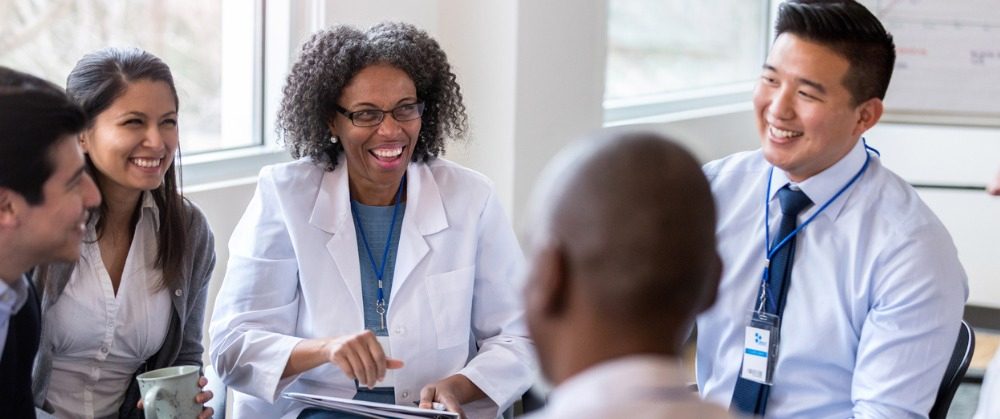Throughout the United States, millions of Americans work in health professions. Although their roles, responsibilities, and settings may vary, health professionals share a common goal of offering their patients the best care possible.
This year, in honor of Health Professions Week, we’re focusing on interprofessional education (IPE) and interprofessional practice (IPP). When health care professionals work together, they can ensure that their patients’ individual needs are met and provide care for the whole person. Check out some recent additions to our IPE and IPP Special Collection below!
Interprofessional Education
State of the Practice of Team Science in Speech-Language Pathology and Audiology: Speech-language pathologists (SLPs) and audiologists are expected to collaborate with other professionals across a variety of settings, but few receive training on team science in graduate education. This article surveyed doctoral students, faculty, and scientists about education in collaborative research and the benefits and challenges related to team science.
Effects of Using Mixed Reality With Coaching on the Interprofessional Communication Skills of Speech-Language Pathology Graduate Students: Future clinicians can best serve their patients when they’re able to communicate well with fellow health professionals. Although graduate students don’t often have the opportunity to practice this important skill, this article explored using role playing and “mixed reality” to help students improve their interprofessional communication skills.
Interprofessional Practice
A Preliminary Study of Nursing Practice Patterns Concerning Dysphagia Diet Modification: Implications for Interprofessional Education With SLPs: Most SLPs report that they’ve worked with a fellow hospital employee who changed a patient’s diet without their approval, making eating less safe for dysphagia patients. Learn how SLPs can better inform hospital staff of the importance of following diet protocols for patients with dysphagia.
Speech-Language Pathologist Involvement in Multi-Tiered System of Supports Questionnaire: Advances in Interprofessional Practice: SLPs’ specialized skills allow them to make significant contributions within a collaborative problem-solving process at school and district levels. This article explored whether or not SLPs were regularly involved in a multi-tiered system of supports (MTSS) framework in schools.
Audiology, Medicine, and Pharmacy Interprofessional Preliminary Interviews and Discussions: Improving Hearing Health Care in Rural Alabama: Americans living in rural areas may have difficulty seeking care from specialists such as audiologists. This article explored what physicians and pharmacists know about the impact of hearing loss on quality of life in an attempt to begin collaboration to support residents in these areas.
Early Childhood Professionals’ Management of Young Children Who Stutter: A Cross-Sectional Study: In this article, the authors surveyed how SLPs, nurses, and teachers initially manage a young child after identifying a stutter. The results suggested that increased guidelines and education can help these professionals better work together—and ultimately help young children who stutter.
Thriving Through Collaboration
Although some of the findings in these articles certainly show that there’s room for improvement, the first step toward fixing an issue is identifying it. We believe that by pursuing IPE, IPP, and interprofessional understanding, ASHA members can work with colleagues to pursue their patients’ best interests.
If these articles leave you inspired, you can find more on our newly updated IPE and IPP special collection. This collection includes more than 50 articles on IPE and IPP from ASHA’s five journals and The ASHA Leader, along with evidence maps and other resources from ASHA designed to increase IPE and IPP. This Health Professions Week, we hope you’re inspired to find new ways to collaborate with—and celebrate—the health professionals you work with every day.







